Animesh Jha
Certified Unlearning for Neural Networks
Jun 08, 2025
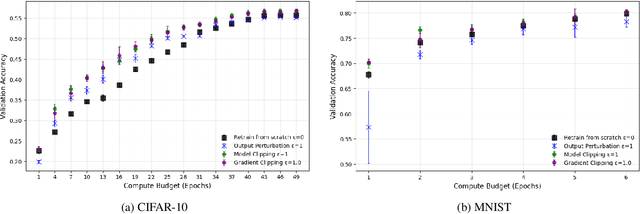
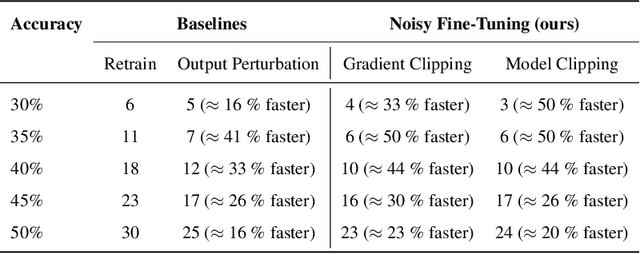
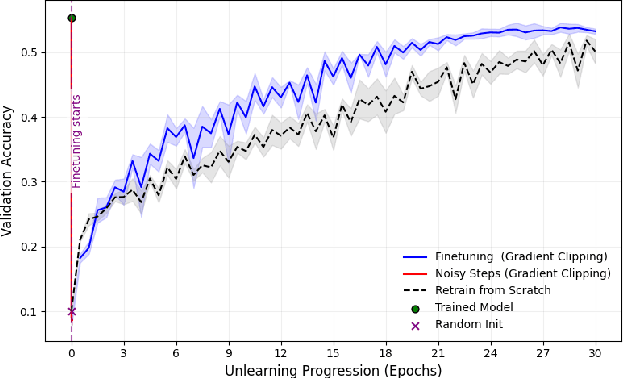
Abstract:We address the problem of machine unlearning, where the goal is to remove the influence of specific training data from a model upon request, motivated by privacy concerns and regulatory requirements such as the "right to be forgotten." Unfortunately, existing methods rely on restrictive assumptions or lack formal guarantees. To this end, we propose a novel method for certified machine unlearning, leveraging the connection between unlearning and privacy amplification by stochastic post-processing. Our method uses noisy fine-tuning on the retain data, i.e., data that does not need to be removed, to ensure provable unlearning guarantees. This approach requires no assumptions about the underlying loss function, making it broadly applicable across diverse settings. We analyze the theoretical trade-offs in efficiency and accuracy and demonstrate empirically that our method not only achieves formal unlearning guarantees but also performs effectively in practice, outperforming existing baselines. Our code is available at https://github.com/stair-lab/certified-unlearningneural-networks-icml-2025
[Re] Differentiable Spatial Planning using Transformers
Aug 19, 2022![Figure 1 for [Re] Differentiable Spatial Planning using Transformers](/_next/image?url=https%3A%2F%2Fai2-s2-public.s3.amazonaws.com%2Ffigures%2F2017-08-08%2Ff52887523e4052a448b8dced56e196661b8109ea%2F4-Figure1-1.png&w=640&q=75)
![Figure 2 for [Re] Differentiable Spatial Planning using Transformers](/_next/image?url=https%3A%2F%2Fai2-s2-public.s3.amazonaws.com%2Ffigures%2F2017-08-08%2Ff52887523e4052a448b8dced56e196661b8109ea%2F5-Table1-1.png&w=640&q=75)
![Figure 3 for [Re] Differentiable Spatial Planning using Transformers](/_next/image?url=https%3A%2F%2Fai2-s2-public.s3.amazonaws.com%2Ffigures%2F2017-08-08%2Ff52887523e4052a448b8dced56e196661b8109ea%2F5-Figure2-1.png&w=640&q=75)
![Figure 4 for [Re] Differentiable Spatial Planning using Transformers](/_next/image?url=https%3A%2F%2Fai2-s2-public.s3.amazonaws.com%2Ffigures%2F2017-08-08%2Ff52887523e4052a448b8dced56e196661b8109ea%2F6-Table2-1.png&w=640&q=75)
Abstract:This report covers our reproduction effort of the paper 'Differentiable Spatial Planning using Transformers' by Chaplot et al. . In this paper, the problem of spatial path planning in a differentiable way is considered. They show that their proposed method of using Spatial Planning Transformers outperforms prior data-driven models and leverages differentiable structures to learn mapping without a ground truth map simultaneously. We verify these claims by reproducing their experiments and testing their method on new data. We also investigate the stability of planning accuracy with maps with increased obstacle complexity. Efforts to investigate and verify the learnings of the Mapper module were met with failure stemming from a paucity of computational resources and unreachable authors.
Reproducibility Report: Contrastive Learning of Socially-aware Motion Representations
Aug 18, 2022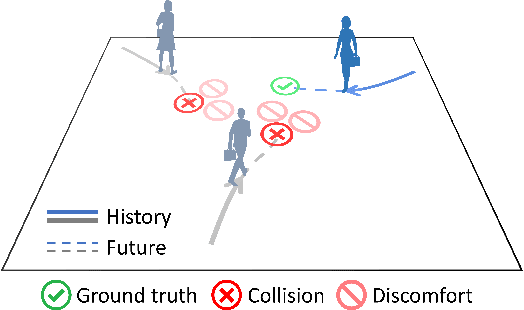


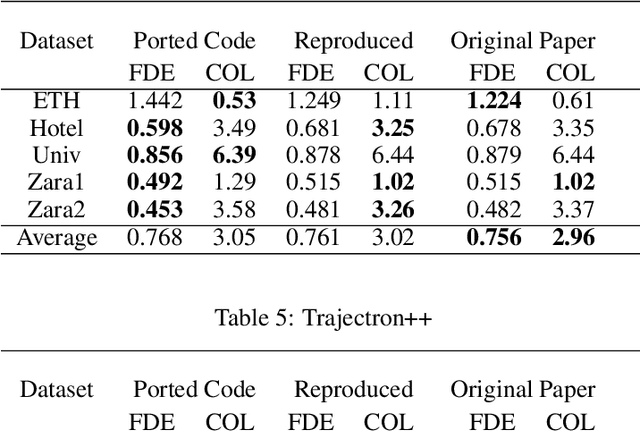
Abstract:The following paper is a reproducibility report for "Social NCE: Contrastive Learning of Socially-aware Motion Representations" {\cite{liu2020snce}} published in ICCV 2021 as part of the ML Reproducibility Challenge 2021. The original code was made available by the author \footnote{\href{https://github.com/vita-epfl/social-nce}{https://github.com/vita-epfl/social-nce}}. We attempted to verify the results claimed by the authors and reimplemented their code in PyTorch Lightning.
Local NMPC on Global Optimised Path for Autonomous Racing
Sep 15, 2021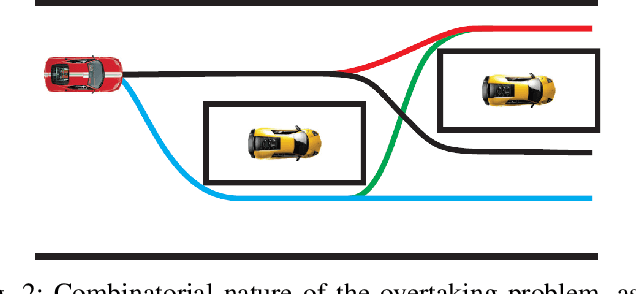
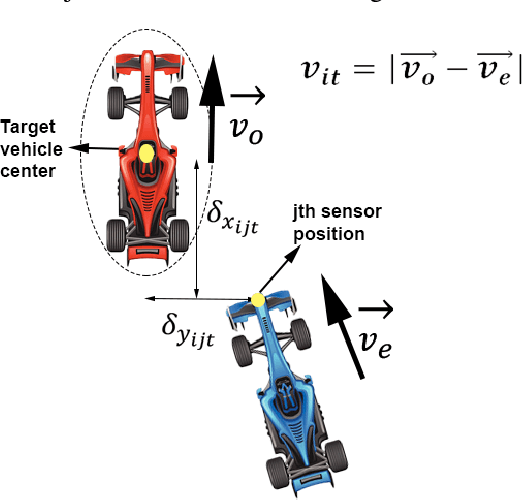
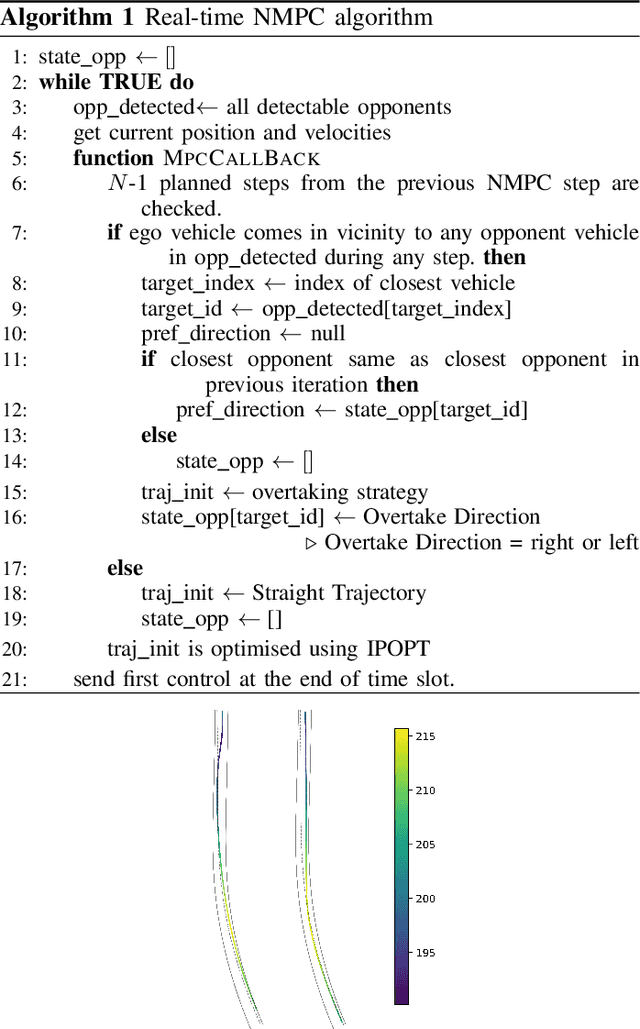
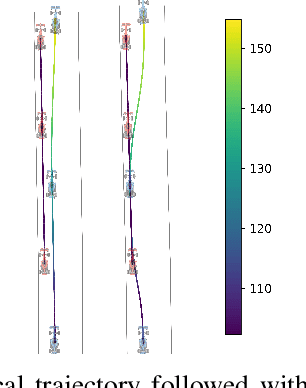
Abstract:The paper presents a strategy for the control of anautonomous racing car on a pre-mapped track. Using a dynamic model of the vehicle, the optimal racing line is computed, taking track boundaries into account. With the optimal racing line as areference, a local nonlinear model predictive controller (NMPC) is proposed, which takes into account multiple local objectives like making more progress along the race line, avoiding collision with opponent vehicles, and use of drafting to achieve more progress.
 Add to Chrome
Add to Chrome Add to Firefox
Add to Firefox Add to Edge
Add to Edge